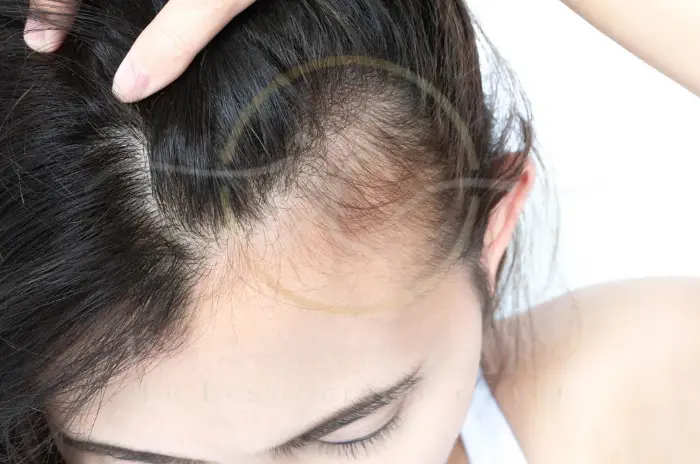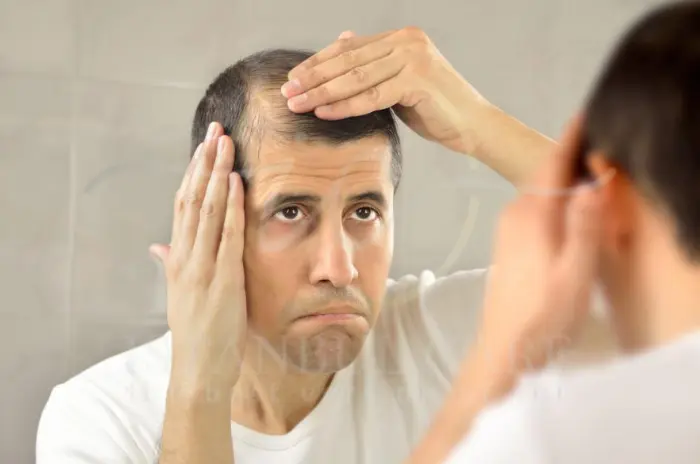
What is lupus hair loss
Lupus hair loss, medically termed lupus alopecia, affects approximately 45-85% of lupus patients at some point during their disease progression. This type of hair loss differs significantly from typical pattern baldness, presenting unique characteristics that reflect underlying autoimmune inflammation. The condition manifests in several patterns, from diffuse hair thinning across the entire scalp to localized patches of complete hair loss. Unlike genetic hair loss, lupus alopecia often occurs suddenly and may be accompanied by other lupus symptoms such as fatigue, joint pain, and skin rashes.Types of Lupus Hair Loss:
- Diffuse Hair Loss: Widespread thinning affecting the entire scalp
- Patchy Alopecia: Circular or irregular bald patches
- Scarring Alopecia: Permanent hair loss with scarring (lupus hair)
- Frontal Hair Loss: Thinning primarily at the hairline and temples
| Feature | Description |
|---|---|
| Onset | Often sudden and coincides with lupus flares |
| Pattern | Diffuse thinning or patchy loss |
| Texture | Hair becomes brittle, dry, and easily breakable |
| Scalp condition | May show inflammation, scaling, or scarring |
| Associated symptoms | Often accompanies other lupus manifestations |
Why lupus causes hair loss
Lupus causes hair loss through multiple mechanisms involving immune system dysfunction, chronic inflammation, and medication side effects. Understanding these pathways helps patients and healthcare providers develop more effective treatment strategies. The primary mechanism involves the immune system mistakenly attacking hair follicles as foreign invaders, leading to inflammation that disrupts normal hair growth cycles. This autoimmune response can damage follicular structures, leading to temporary or permanent hair loss depending on severity and duration of inflammation. Primary Mechanisms:- Autoimmune Attack: Immune cells target hair follicles directly
- Chronic Inflammation: Systemic inflammation affects follicle health
- Hormonal Disruption: Lupus alters hormone production affecting hair growth
- Medication Side Effects: Treatments like corticosteroids can cause hair loss
- Nutritional Deficiencies: Malabsorption and dietary restrictions impact hair health
| Lupus Activity Level | Hair Loss Severity | Characteristics |
|---|---|---|
| Mild | Slight thinning | Minimal noticeable changes |
| Moderate | Moderate diffuse loss | Visible thinning, increased shedding |
| Severe | Significant loss | Patchy or extensive hair loss |
| Flare periods | Acute onset | Sudden, dramatic hair loss episodes |
Effective Treatments for Hair Loss Caused by Lupus
Treating lupus-related hair loss requires addressing both the underlying autoimmune disease and specific hair loss symptoms. Successful treatment typically involves collaboration between rheumatologists, dermatologists, and hair specialists. The foundation of treatment focuses on achieving lupus disease control through appropriate immunosuppressive therapy. When lupus activity is well-managed, hair loss often improves significantly, though complete recovery may take several months to years.Medical Treatment Options:
- Immunosuppressive Therapy: Controlling lupus activity to reduce follicle inflammation
- Topical Corticosteroids: Reducing localized scalp inflammation
- Antimalarial Medications: Hydroxychloroquine may help prevent hair loss
- Minoxidil: FDA-approved treatment for promoting hair regrowth
- JAK Inhibitors: Newer treatments showing promise for autoimmune alopecia
Treatment Timeline and Expectations:
| Treatment Phase | Duration | Expected Results |
|---|---|---|
| Initial stabilization | 3-6 months | Reduced hair loss, lupus control |
| Early improvement | 6-12 months | New hair growth begins |
| Significant regrowth | 12-24 months | Noticeable hair density improvement |
| Maintenance | Ongoing | Sustained hair health with lupus management |

Best Hair Care Practices for Lupus Patients
Lupus patients require specialized hair care approaches that protect fragile hair while avoiding triggers that might exacerbate autoimmune responses. Gentle care practices can significantly reduce mechanical hair damage and support the healing process during treatment. Gentle Hair Care Essentials:- Mild Shampoos: Use sulfate-free, gentle formulations
- Lukewarm Water: Avoid hot water that can irritate inflamed scalp
- Minimal Heat Styling: Limit use of blow dryers, curling irons, and straighteners
- Soft Toweling: Pat hair dry gently rather than vigorous rubbing
- Protective Hairstyles: Choose loose styles that don't pull on hair
| Morning | Evening | Weekly |
|---|---|---|
| Gentle brushing with soft bristles | Scalp massage with oils | Deep conditioning treatment |
| UV protection for scalp | Silk or satin pillowcase | Gentle clarifying shampoo |
| Loose, protective styling | Remove tight accessories | Professional scalp assessment |
Medical and Natural Remedies for Lupus Hair Loss
A comprehensive approach combining medical treatments with natural remedies often provides the best outcomes for lupus-related hair loss. While medical intervention remains essential for controlling the autoimmune process, natural remedies can support hair health and complement conventional treatments. Since stress can trigger lupus flares and worsen hair loss, incorporating stress-reduction techniques becomes crucial for comprehensive treatment. Meditation, yoga, gentle exercise, and adequate sleep support both immune system regulation and hair health. An anti-inflammatory diet rich in antioxidants, lean proteins, and essential fatty acids can support both lupus management and hair health. Avoiding potential trigger foods and maintaining stable blood sugar levels helps reduce systemic inflammation that contributes to hair loss.Why Lupus Causes Hair Shedding and How to Minimize It
Hair shedding in lupus results from disrupted hair growth cycles caused by autoimmune inflammation. The normal hair growth cycle consists of anagen (growth), catagen (transition), and telogen (resting) phases. Lupus inflammation prematurely pushes hair follicles into the telogen phase, resulting in increased hair shedding. Timing of hair care activities can significantly impact shedding. Washing hair less frequently, using protective styles during sleep, and avoiding tight accessories during high-stress periods helps minimize mechanical hair loss. Understanding personal triggers that worsen lupus activity helps patients anticipate and prevent periods of increased hair shedding. Common triggers include sun exposure, infections, certain medications, and emotional stress.Can you get a hair transplant with lupus
Hair transplantation in lupus patients presents unique challenges and considerations that require careful evaluation by experienced medical teams. While not impossible, several factors must be assessed before determining candidacy for surgical hair restoration procedures. The primary concern involves the autoimmune nature of lupus, which can affect healing and potentially attack transplanted follicles. Additionally, ongoing disease activity, medication regimens, and the type of hair loss pattern all influence transplant success rates. For patients who are not candidates for hair transplant, several alternatives exist including high-quality wigs, hair systems, scalp micropigmentation, and continued medical management of existing hair. Intermediary organizations specializing in hair restoration for autoimmune patients emphasize the importance of realistic expectations and comprehensive pre-surgical evaluation to ensure optimal outcomes and patient safety.We’re ready to answer your questions
Lupus causes hair loss through autoimmune inflammation that targets hair follicles, disrupting the normal hair growth cycle. The immune system mistakenly attacks hair follicles as foreign invaders, leading to inflammation that damages follicular structures. Additionally, chronic systemic inflammation, hormonal disruptions caused by the disease, and side effects from lupus medications all contribute to hair loss.
Hair regrowth potential in lupus depends on the type of hair loss experienced. Diffuse hair loss caused by inflammation typically has good regrowth potential once lupus activity is controlled, though complete recovery may take 12-24 months. However, scarring alopecia (lupus hair) results in permanent hair loss in affected areas because the follicles are destroyed by inflammation.
Lupus hair loss typically presents as sudden onset diffuse thinning across the entire scalp, increased hair shedding during washing or brushing, and hair that becomes brittle, dry, and easily breakable. Patients may notice circular or irregular bald patches, particularly around the hairline and temples
While complete prevention may not be possible, several strategies can minimize lupus-related hair loss. The most important factor is maintaining good lupus disease control through proper medication adherence and regular medical care. Gentle hair care practices, including using mild shampoos, avoiding heat styling, and protective hairstyles, help reduce mechanical damage.
Follow us on social media for updates, tips, and patient success stories:

